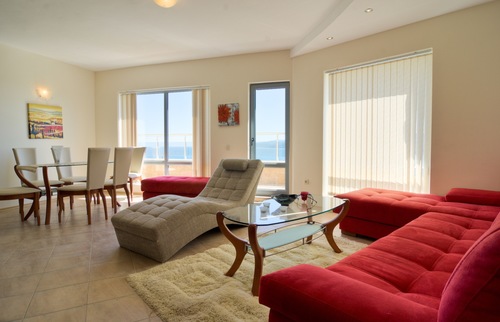
Source: FreeImages.com/miro_penev
In all of travel, there is no topic more puzzling and contradictory, more challenging and debatable, than the short-term rental of apartment accommodations. In cities scattered across the nation, and overseas, various laws prohibit some such rentals or burden them with odd requirements, and innocent people have been prosecuted for running afoul of the regulations. Yet hundreds of thousands of tourists continue to rent such apartments for a week or so, despite the proclamation of some attorneys general that they shouldn't.
In Paris, France, the mere short-term rental of an apartment is apparently illegal, yet no one seems to pay attention to the prohibitiion. And several websites publish attractive websites of Parisian apartments available for short-term rentals. In New York City, it is illegal to rent an entire apartment for a short stay, but perfectly legal to rent a spare room in an apartment whose owner remains in residence, yet no one seems to pay much attention to the distinction. And New York State's attorney-general has actually prosecuted a young man who rented his apartment to tourists who believed they would be the sole occupants of it.
Though short-term apartment rentals in the United States have been frequent for many decades, the practice took off when several entrepeneurs created a service called Airbnb. In cities where a major football event or convention booked up all hotel space for a period of time, they offered tourists the chance to continue visiting those cities by staying in the apartment of a resident. The apartment owner made extra money, the tourist enjoyed a place to sleep, and no one was hurt.
But what began as an innocent rental of spare rooms, was soon expanded into the short-term rental of entire apartments, diverting business from hotels. And some "bad apples" soon began renting all the apartments in a single building, thus operating illegal hotels. It was to prevent the latter practice that several city councils and state legislatures enacted laws prohibitng much of the business of Airbnb. These legislators were opposed to practices that reduced the number of apartments available to permanent residents.
But it's a tragedy that such laws failed to exempt wholly innocent rentals of apartments that had no impact whatever on the overall space available to permanent residents. When some Americans go on vacation, they rent their apartment that would otherwise remain empty for two weeks or more to a tourist, and the total space available to permanent residents is unaffected. When some young people decide to earn extra revenues by occasionally moving out to stay with a friend, their rental of the vacated apartment has no impact on the total space available to permanent residents. Yet both such practices are theoretically illegal in New York. And the injustice of their being illegal has caused a great many people to pay no attention to the prohibition.
The existence of valid reasons for short term rentals to tourists has caused numerous travel companies to enter that business. Today, the short term rental of apartments by Airbnb is perhaps surpassed in number by the same activity practiced by Homeaway.com, by VRBO.com, by Flipkey, Roomorama, Apartments.com, by TripAdvisor.com, and many others. And last month, Homeaway.com actually publicized its short-term rentals of apartments by erecting an apartment on the second floor of the Eiffel Tower in Paris, and making it available to the winners of a contest that had been entered by over 150,000 people worldwide. (Editor's note: Frommers' President Pauline Frommer was a judge of that contest.)
It is to be hoped that the emergence of such additional short-term-rental companies will cause law-makers to restudy the issue, and to enact carefully limited rules for such rentals. People will want to continue renting their apartments for short terms, without operating "illegal hotels."





